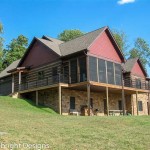Essential Considerations for Flooring Your Concrete Basement Floor
Transforming your concrete basement floor into a functional and stylish space requires careful consideration of essential flooring options. Whether you seek warmth, durability, or aesthetic appeal, choosing the right flooring material is crucial. This comprehensive guide explores the key aspects to consider when selecting the perfect flooring for your concrete basement floor.
1. Basement Environment:
Evaluate the specific environment of your basement. Does it experience moisture, humidity, or temperature fluctuations? Consider the potential for flooding and water damage. Choosing moisture-resistant flooring materials like vinyl or epoxy is essential in damp basements.
2. Subfloor Condition:
Assess the condition of your concrete subfloor before installing new flooring. Cracks, unevenness, or moisture issues require proper preparation. Leveling compounds or moisture barriers may be necessary to ensure a smooth and stable surface.
3. Intended Use and Traffic:
Consider how you plan to use your basement. High-traffic areas like workshops or playrooms require durable flooring that can withstand heavy foot traffic and potential spills. Soft surfaces like carpet offer warmth and comfort for areas intended for relaxation.
4. Flooring Materials:
A wide range of flooring materials is available for concrete basements. Each has its unique advantages and drawbacks:
5. Installation:
Consider the complexity and cost of installation for each flooring option. Some materials, like epoxy, require professional installation, while others, like vinyl planks, can be DIY-friendly.
6. Maintenance and Durability:
Flooring for concrete basements must be easy to clean and maintain. Some materials, like epoxy, are highly resistant to stains and wear, while others, like carpet, may require regular cleaning and replacement.
7. Aesthetics:
In addition to functionality, consider the aesthetic appeal of the flooring. Choose a material that complements your basement's existing décor and personal style. Explore various colors, textures, and patterns to create a cohesive and inviting space.
By carefully considering these essential aspects, you can select the perfect flooring for your concrete basement floor, maximizing functionality, durability, and aesthetic value. Transform your basement into a warm, stylish, and practical living space that meets your needs and enhances your home's beauty.

How To Carpet A Basement Floor Diy Family Handyman

Polished Concrete Flooring Options For Your Basement Duraamen

What Is The Best Flooring To Put On A Concrete Basement Floor

6 Inspiring Ideas For Basement Flooring In Portland

6 Concrete Floor Covering Options Ideas Network

15 Diy Basement Flooring Ideas Affordable Options For Basements

What Is The Best Flooring For A Concrete Floor Basement Illinado Llc

What Are The Best Flooring For Basement In Homes

Best Basement Flooring Systems Over Concrete Options And Ideas

Best Flooring For Basement Renovations
Related Posts







